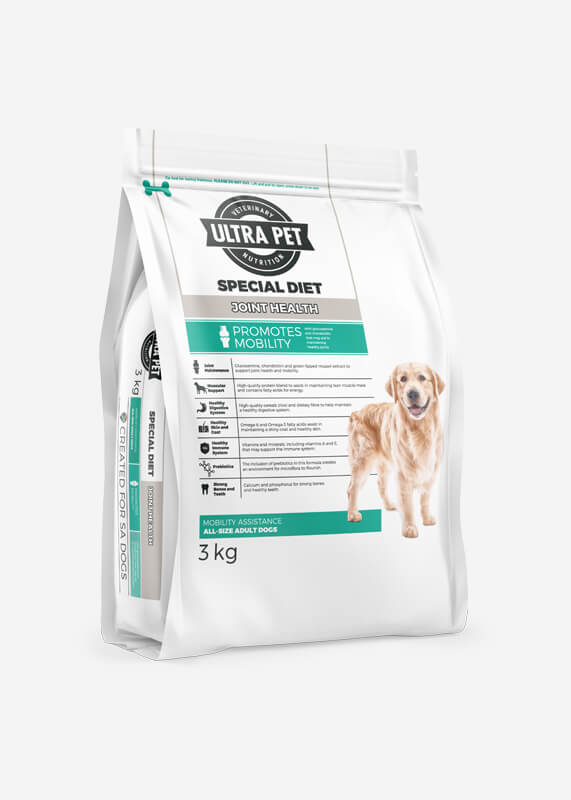Good News To Picking Pet Wellbeing Australia
Wiki Article
Omega-3 Fatty Acids Can Aid Dogs And Cats With Their Joint Health.
Omega-3 fatty oils, especially EPA and DHA, play a key role in improving the joint health of dogs and cats. The reasons why they're so beneficial:
Anti-inflammatory properties
Reduce Inflammation
Function Omega-3 fatty acids possess strong anti-inflammatory properties. They inhibit the proinflammatory cytokines the eicosanoids, as well as other molecules that cause inflammation.
Omega-3s are beneficial for reducing inflammation of the joints. They help to decrease swelling and pain caused by arthritis. This can make movement more comfortable for pets, improving their overall quality of life.
Joint Lubrication and Health
Improved joint Lubrication
Function Essential: Omega-3 acids are necessary to maintain the health of synovial fluid that is what lubricates joints.
Benefits: Better lubrication results in smoother joints, less friction, and reduced wear and tear on cartilage. It's particularly beneficial for pets with joint problems or are at the risk of getting joint problems.
Cartilage Protection and Repair
Cartilage Protection:
Function: Omega-3s help maintain cartilage health by reducing the activity of enzymes responsible for the breakdown of cartilage.
Benefits : Keeping cartilage healthy helps maintain joint health and slows the progression of osteoarthritis.
Immune System Support
Immune System Regulation:
The function of Omega-3 acids is to regulate immune responses, promoting the balance of inflammation.
Benefits: A well-controlled immune system can handle joint health issues, and can help prevent excessive inflammation and further joint injury.
Comfort and Mobility are improved
Better Mobility
Function In reducing inflammation and preserving joints, Omega-3s aid pets move more easily.
Benefits: Senior pets and those with arthritis tend to be more mobile and suffer less discomfort. This lets them enjoy a healthier and more active lifestyle.
Additional Health Benefits
Overall Health
Function Omega-3 fat acids be beneficial to the well-being of your pet's skin, coat and cardiovascular system.
Benefits of having a healthy pet A pet that is healthy is more active and have healthier joints.
Use and considerations
Dosage and Administration: The amount of Omega-3s to administer depends on your pet's weight size, health and condition. It's important to follow the veterinarian's recommendations or the product label instructions.
Sources of Omega-3s Top-quality fish oil supplements are a common source of EPA and DHA. It's essential to choose products specifically designed for pets to ensure their safety and effectiveness.
Side Effects: Omega-3 supplements are generally safe, however some pets may experience gastrointestinal issues or fishy breath. Beginning with a lower dosage and gradually increasing it will help minimize the consequences.
Conclusion
Omega-3 fatty acids are beneficial to joints' health and wellbeing for both dogs and cats. They can reduce inflammation, enhance joint lubrication, protect cartilage and aid in the development of immunity all help improve joint health and reduce discomfort. Regular supplements can result in greater mobility and a healthier, more active lifestyle for pets. Follow the recommended natural dog company advice for site examples including pet calming supplements, pet supplements for pets with fear of mirrors, pet bromelain supplements, pet supplements for pets with brittle nails, pet quercetin supplements, natural cat supplements, pet supplements for pets with fear of loss, pet bilberry supplements and more.

How Can Coconut Oil Aid With Dog And Cat Allergies To The Skin?
Coconut oil is an effective natural remedy for pets and cats suffering from skin allergies. This is due to its anti-inflammatory, healing and antimicrobial properties. Coconut oil offers many benefits for pets who suffer from allergies to the skin.
Moisturizing Properties
Hydration of the skin
Use: Coconut oil is an excellent moisturizer that can penetrate the skin quickly.
Benefits: Helps moisturize dry, flaky and itchy skin. This relieves itching, while promoting an effective skin barrier. This is particularly helpful for animals suffering from allergic dermatitis which typically causes dry and itchy patches of skin.
Anti-inflammatory effects
Reduced Inflammation
Coconut oil has anti-inflammatory properties because of the lauric acid it contains.
Coconut oil can help reduce swelling, inflammation and discomfort that can be caused from skin allergies. This can offer significant relief for pets suffering from allergic reactions.
Antimicrobial Activity
Fighting Infections
Function The antimicrobial properties of caprylic and lauric acids in coconut oil assist to fight viruses, bacteria and fungi.
Coconut oil is beneficial in the treatment of secondary skin infections which can result from irritations or scratches due to allergies. This is beneficial in improving overall skin health and preventing the occurrence of complications.
Healing and Relaxation
Promoting Healing:
Coconut oil has a healing effect on the skin.
Benefits : It is an all-natural remedy that can help treat minor abrasions and cuts. This can speed up the healing process of skin damaged due to allergies.
Barrier Protection
Enhancing Skin Barrier:
The function: Coconut oil helps reinforce the skin's natural barrier.
Benefits: A stronger skin barrier will protect against allergens as well as environmental irritants. It also decreases the risk of skin irritations and allergic reactions.
Dietary Supplements
Internal Benefits
Function: Coconut oil can also be taken orally as nutritional supplement.
It helps improve the condition of skin by nourishing the skin from inside. Its antimicrobial qualities and anti-inflammatory effects can help to decrease the inflammatory response in the system and boost the immune system of pets. This may result in a decrease in the incidence and severity of skin allergies.
Use and considerations
Topical application - Apply a small amount of coconut oil directly to affected skin. Massage the coconut oil with gentle pressure until it absorbs. You can do this once or twice a day, depending on how severe the condition of your skin is.
Coconut oil is a good addition in pet food. The usual amount of coconut oil used is one teaspoon for every 10 pounds of body weight. However, it is crucial to begin small and increase the amount gradually to avoid stomach upset.
The quality of Coconut Oil: Use high-quality, organic, virgin coconut oil to make sure it is free of additives and preservatives.
Monitoring for Reactions. Coconut oil is generally considered to be safe for pets, be sure to watch for any reactions.
The final sentence of the article is:
Coconut oil can be an effective natural remedy for treating skin allergies in dogs as well as cats. Its moisturizing and anti-inflammatory healing, and antimicrobial properties can soothe and protect the skin, lessen itching and inflammation, as well as promote overall skin health. Coconut oil is an excellent solution to alleviate allergy symptoms. It can also be used as a nutritional supplement. Have a look at the most popular collagen for dogs blog for website recommendations including pet ashwagandha supplements, pet supplements for pets with joint degeneration, pet supplements for pets with fear of explosions, pet echinacea supplements, pet omega-6 supplements, pet boswellia supplements, pet supplements for pets with spinal problems, pet nutrition and more.

Apple Cider Vinegar Helps With Yeast Infections In Cats And Dogs.
ACV is frequently used to treat yeast infections among cats and dogs. ACV is acidic and can have side effects. While some anecdotal and research-based evidence supports its benefits, you should take it under the supervision by a veterinarian due its potential side-effects and its acidic nature. ACV can help treat yeast infections.
Antifungal Properties
Acidic Environment
ACV acts as an acidic product with an average pH of between 2.5 and 3. The environment is not ideal for yeast to flourish.
Benefits of the use of ACV Application of ACV dilute on top of the head, or adding ACV to pet bath water will reduce the amount of yeast that is present on the skin and ears.
Skin pH Regulation
Balancing Skin pH:
Function: ACV is believed to assist in the balance of pH levels, which can support a healthy skin barrier and inhibit yeast growth.
Benefits - Maintaining a healthy pH balance for the skin is an excellent way to avoid yeast infections and ensure overall skin health.
Anti-inflammatory effects
Reduce inflammation:
Function: ACV has mild anti-inflammatory properties.
Benefits: Reducing swelling may alleviate symptoms associated with yeast infections, such as irritation, discomfort and redness.
Support for Digestive Health
Internal Use
ACV could help improve digestive health and assist in balancing the gut bacteria after ingesting.
Benefits The healthy environment in the gut improves overall immune function and microbial imbalance which can reduce the growth of yeast.
Usage and factors
Topical Application: Use ACV in diluted form by water (typically 1 part ACV for 1-2 parts water) in a spray or rinse for the affected areas of the skin or ears. Do not apply ACV directly to open wounds on the skin or to sensitive regions.
See a veterinarian prior to considering any usage for internal use. ACV is best given in very small amounts and in a highly dilute form (1 1 teaspoon to 1 tablespoon per cup of liquid) to prevent any stomach discomfort.
Check for signs of irritation or any allergic reaction after applying ACV on the skin. If you experience any adverse reactions, discontinue using ACV.
Consultation with a Veterinarian: Prior to using ACV for treating yeast infections in pets, it is important to consult a veterinarian. They can give you guidance on the right dosage and application method for your pet as well as potential risks.
The conclusion of the article is:
While apple cider vinegar does have the potential to help manage yeast infections, it is essential that it is done in a cautious manner and with the help by a veterinarian. ACV can have mild anti-inflammatory properties and its acidic nature may help to create an unfavourable environment that encourages yeast growth. It is essential to dilute the ACV correctly and apply it cautiously so as to avoid irritations or other adverse reactions. The guidance of veterinary medicine ensures that ACV is used safely and efficiently as a part of a holistic treatment program for yeast infections in pets. Read the most popular go to the website about collagen for dogs for site info including pet ear supplements, pet vitamins australia, pet supplements for pets with weak bones, mcdowells herbal, pet wellbeing australia, pet supplements for pets with hip dysplasia, pet supplements for pets with fear of loud noises, pet immune system supplements and more.
